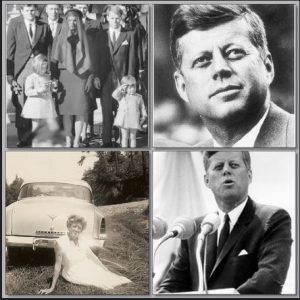 Is it possible to love someone through another’s memory? To love and admire someone you never met, someone you will never be able to meet, someone who at the moment of their passing caused an incredible upheaval of grief and gouged an enormous chasm of longing for things that can never be, someone who a large number of people still speak of with reverence, awe, and thankfulness?
Is it possible to love someone through another’s memory? To love and admire someone you never met, someone you will never be able to meet, someone who at the moment of their passing caused an incredible upheaval of grief and gouged an enormous chasm of longing for things that can never be, someone who a large number of people still speak of with reverence, awe, and thankfulness?
I believe it is possible.
I know it is possible.
I know it because I participate in this kind of love and admiration every day for two vastly different Americans who left this Earth almost a year to the day from one another. My admiration for these two individuals stems from my mother who shared her memories of them with me during my formative years, and they became intertwined and linked indelibly in the murkiness where actual memory and grafted memories blend.
I was six months old on Saturday, November 24, 1962, when my grandmother passed. Naturally, I have no real memories of this day. What I know comes from Dear Sister who was six at the time. We had just celebrated Thanksgiving the previous Thursday. More than likely my parents had driven my sister and I to their shared hometown to visit with my Dad’s folks and then my Mom’s. Little did anyone know it would be the last time my Mom saw her mother alive. Dear Sister recollects the phone ringing that Saturday afternoon and nothing ever being the same again. She tells me now that Mother began wailing and flung herself across her bed. Dear Sister remembers simply standing and staring at Mother as she became a grieving, heaving mass of pain. When she remembers that moment she sees a collage of images of mother mixed with the piney hardwood floor of our hallway, the old radio that had been mothers as a teen now used as a phone table in the hallway, and how time seemed to stand still. Dear Sister was watching Mother’s agony as she had been told her mother had been found dead of a heart attack at the age of 62.
It was sudden. It was cruel. It was not what anyone would have expected. In the many notebooks filled with her writing, my Mother states Nanny was tall and slender with broad shoulders. She had beautiful skin and dark, thick, course hair. She was a great cook and seamstress – most of the clothes my mother wore were handmade by my grandmother. She was always a cheerful person – smiling, laughing, and always hid any problems she might have – plus she always wanted to do something to help people who were less fortunate than herself.
Dear Sister speaks of our “Nanny” by describing her simply as FUN. She remembers having great times with Nanny. In every picture I have ever seen of my grandmother she is wearing a June Cleaver type dress…..shirtwaist, short sleeves, and full skirt. Dear Sister remembers Nanny would place her in the hem of her skirt and swing her back and forth.
That had to be fun.
Dear Sister tells of waking on warm mornings and gazing up on the wall where a picture hung of a little boy and a little girl. They were about to cross a bridge and an angel was hovering at their shoulders. She has told me this picture actually scared her. We were told as children that the boy and girl were on their way to Heaven. I remember the framed print too. It scared me as well. Dear Sister has told me she would lie in bed the longest time and try NOT to feel sorry for the children, but it was hard. As an adult I now understand the significance of that print. My grandmother had bore tragedy upon tragedy as young woman. Her first husband had been shot to death, and she had lost three children – one to sickness, one got ahold of some medicine that had been left out, and a baby boy had been born dead. The print that scared my sister and I so probably gave comfort to our grandmother and might have been the reason it hung in the spare bedroom.
Once awake Dear Sister would walk into the front room and find a big bowl of blueberries on the floor between the screen door and door jam. She’d sit on the gritty floor and munch away. It always seemed, Dear Sister says, that Nanny would just know she was up and awake. She’d turn from her chores in the garden and give a hearty good mornin’ wave, and Dear Sister’s day of fun would begin by building a playhouse out of tongue and groove planks and a card table Nanny would provide for her. I’ve always been told Nanny loved working with plants and apparently she could get anything to grow anywhere. Dear Sister remembers Nanny always smelled delicious – a combination of sunshine and fresh turned earth. Things could be done at Nanny’s house that could not be done at home. Nanny always allowed Dear Sister to make mud pies on the porch not with water, but with real honest to goodness buttermilk.
Dear Sister remembers our father holding her as they stood in front of the casket that was set up in the front room of my grandparent’s home, and she remembers the funeral which took place at the one room wooden church with the obligatory outhouse in the back plopped in the piney woods where three generations of my mother’s family scratched the dirt.
The land for the church had at one time been part of the family farm, but my great grandfather had donated it to the church folk because that was the right thing to do.
Nanny was laid to rest in dirt that was home to her.
Dear Sister remembers a long service, our distraught mother who we now know had been given something to keep her calm and quiet, and the long row of our grandfather’s half-sisters who were actually more in line with our mother’s age than our grandfather’s. Each dear aunt took her turn holding Dear Sister in her lap – first Willie Dee, then Blanche, then Claudine, then Nelle, and Elizabeth and then back to Nelle, then Claudine, then Blanche, and then Willie Dee where the whole process started over again.
Mother grieved.
Years later Mother spoke of grieving hard. She often said the knowledge that she had to take care of Dear Sister and I got her through, but there were days she didn’t know if she could make it.
Our grandfather grieved hard as well. Dear Sister remembers his home being fun because of Nanny. I remember it as dark and dusty shrine much like the Haversham bedroom in Great Expectations. Many things were left exactly like they were the day Nanny left us even down to her pin cushion which always hung on a nail in the hallway with the pins in it just like they were the last time Nanny used it. As I grew older it remained hanging on its nail fading in color with the dust eventually caking over it until it was practically rotten.
Mother often told us about the Kennedy assassination and how the four day coverage of that event actually helped her turn a corner. After that time things weren’t better but her ability to cope was better. Dear Sister and I now realize through Mother’s recollection of the whole time period she had actually lost an entire year. In her mind Nanny’s death and JFK’s assassination were simply a few days apart instead of one year and a few days.
We have memories – Dear Sister and I – of Thanksgiving being a sad time. 1962 was the last Thanksgiving where we travelled to a grandparent’s home. Mother cooked from that point on, but it was always a little sad with a morose pall over the whole day.
Mother cooked, and Mother grieved every Thanksgiving.
Having been born in May, 1962 I am a Kennedy baby, a child born during the fading Age of Camelot and at the tail end of the Baby Boom Generation. Once I was old enough to hear Mother tell her stories (she had a million of them) I was destined to intertwine the borrowed memories of Dear Sister and Mother regarding Nanny and President Kennedy’s tragic death, but even Mother it would appear, had borrowed memories because she had lost a year, a year between her own mother’s death on November 24, 1962 and Kennedy’s assassination on November 22, 1963
While my mother grieved over the loss of her mother many of the events involving space exploration, civil rights, and the Cold War during the last three hundred and sixty-five days of Kennedy’s presidency would shape later events and the course of our country for over the next thirty years.
Following my mother’s tragic Thanksgiving on December 24, 1962 over one thousand Bay of Pigs prisoners were finally exchanged after two years of negotiations for medical supplies and baby food. The struggle for Civil Rights slapped Americans in the face when early in January Alabama governor, George Wallace promised, “Segregation now, segregation tomorrow, and segregation forever.” I continued to do things an eight month old baby does, Dear Sister went to school and played, and our mother – our sweet mother grieved.
In February, 1963 President Kennedy made such things as travel, financial and commercial transactions illegal between U.S. citizens and Cuba. The U.S. Supreme Court ordered states to provide free counsel for defendants who could not afford an attorney in March. I jolted Mother into reality for a bit by falling out of my crib. The metal part of my hair barrette gouged deep into my scalp. Dear Daddy came to the rescue and made it better. Dear Sister went to school and played with the kids next door, and our mother – our sweet mother grieved.
In April, Dr. Martin Luther King, Jr. was arrested in Birmingham with others for “parading without a permit” and wrote his “Letter from a Birmingham Jail” while incarcerated. In May, 1963, the Civil Rights issue heated up even further when Sheriff “Bull” Conner of Birmingham used fire hoses and attack dogs on demonstrators. The images splashed across television screens doing more for the support of civil rights than any speech or endorsement. I celebrated my first birthday with an extremely short haircut (no more barrettes, please), Dear Sister began her summer vacation, and our mother – our sweet mother grieved.
On June 11, 1963 Kennedy gave two important speeches. In one he stated all citizens should have “the kind of equality of treatment which we would want for ourselves.” He spoke of promises that will one day become the Civil Rights Act. The second speech occurred at the Berlin Wall where he spoke of the failure of communism and stated, “Ich bin ein Berliner.” In July, NASA launched Syncom, the world’s first geostationary satellite. I run after and annoyed Dear Sister while she ran after her dog Jingles who ran after Dear Sister’s new Hula Hoop, and our mother – our sweet mother grieved.
In August, Dr. Martin Luther King, Jr. gave his eloquent “I Have a Dream” speech in Washington D.C. while President Kennedy announced changes in policy and personnel were needed with the South Vietnamese government. Tragically in September, the Sixteenth Street Church was bombed in Birmingham killing four sweet little girls. Dear Sister and I were barely aware the nightly news was on as we played around the coffee table as Dear Daddy told us, “Shhhhhhhh…”, and our mother – our sweet mother grieved.
In October, President Kennedy signed the Nuclear Test Ban Treaty, and in early November President Diem of South Vietnam was overthrown and murdered. The next year the Gulf of Tonkin incident would play out. I spent my days playing in front of the television with a yellow plastic baby bed and doll I had gotten for my birthday while Dear Sister went to school, and our mother – our sweet mother grieved.
The first Thanksgiving without Nanny came and went followed by the anniversary of her death. On the afternoon of November 22, 1963 my mother was watching her “programs” as she did for every day of my life. “As the World Turns” was on during that time of the day when Walter Cronkite’s voice interrupted the live broadcast to state,
“Here is a bulletin from CBS News. In Dallas, Texas, three shots were fired at President Kennedy’s motorcade in downtown Dallas. The first reports say that President Kennedy has been seriously wounded by this shooting. More details just arrived…these details about the same as previously, President Kennedy shot today just as his motorcade left downtown Dallas. Mrs. Kennedy jumped up and grabbed Mr. Kennedy, she called ‘Oh no!’, the motorcade sped on. United Press says that the wounds for President Kennedy perhaps could be fatal. Repeating, a bulletin from CBS News, President Kennedy has been shot by a would-be assassin in Dallas, Texas. Stay tuned to CBS News for further details.”
A few minutes later Mr. Cronkite, now on camera was handed a piece of paper from the Associated Press wire machine, put on his glasses, looked it over for a moment, took off his glasses, and told the viewing audience:
“From Dallas, Texas, the flash, apparently official: President Kennedy died at 1 p.m. Central Standard Time—2:00 Eastern Standard Time, some 38 minutes ago.”
After the announcement, Cronkite paused briefly, put his glasses back on and swallowed hard, apparently trying to maintain his composure. Still, there was noticeable emotion and a quaver in his voice as he intoned the next sentence, “Vice President Johnson has left the hospital…”
Mother was no longer alone in her grief. She grieved with Jackie and Rose and the rest of the Kennedy clan. An entire nation grieved. Our television, like many across the nation, remained on for four days straight as the nation’s networks instituted twenty-four hour coverage for the first time ever
I never knew my grandmother. I never knowingly experienced an America while Kennedy was president. I quilted a memory of both of them together through my mother’s grief. I cannot think of one without the other since they are so meshed together. Thanksgiving does not come and go without a remembrance of Nanny and the loss of President Kennedy.
Adlai Stevenson, U.N. Ambassador at the time, said it best regarding the effect of the Kennedy assassination, “All of us will bear the grief of his death until the day of ours…”
So, I’ll end this piece as I began…
Is it possible to love someone through another’s memory? To love and admire someone you never met, someone you will never be able to meet, someone who at the moment of their passing caused an incredible upheaval of grief and gouged an enormous chasm of longing for things that can never be, someone who a large number of people still speak of with reverence, awe, and thankfulness?
I believe it is possible.
I know it is possible.
I know it because I participate in this kind of love and admiration every day for two vastly different Americans who left this Earth almost a year to the day from one another. My admiration for these two individuals stems from my mother who shared her memories of them with me during my formative years, and they became intertwined and linked indelibly in the murkiness where actual memory and grafted memories blend.
Dora Estelle Hill Blanton and John Fitzgerald Kennedy – two vastly different Americans – both worthy to be remembered!
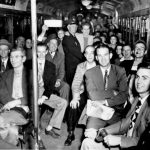
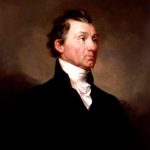
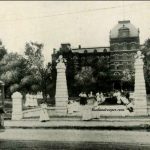
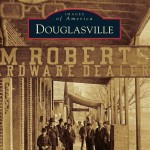
Leave a Reply